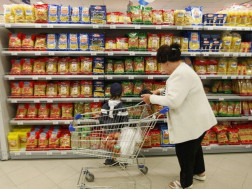Germany recorded a year-on-year inflation rate of 6.4% for June, the first time the rate has increased since February, according to provisional figures from the German Federal Office of Statistics (Destatis) released Thursday.
Inflation marks the increase in the cost of consumer goods in comparison to the same time the previous year.
This means basic goods cost on average 6.4% more in June 2023 than they did in June 2022. The rate for May 2023 was 6.1%.
How is inflation hitting consumers?
The overall inflation rate takes into account various goods, but broken down there is a significant difference between various sectors.
Food prices, for example, were up 13.7%. Although this figure was lower than in May, it still marked a clear burden on consumers.
On the other hand, the price of energy was only up 3% in June 2023 compared to the previous year.
Energy was one of the sectors most impacted by the Russian full-scale invasion of Ukraine which saw Germany and other European countries scale back their consumption of Russian-sourced fossil fuels.
Consumers have been dealing with high inflation for months on end, with many now saying that they find it difficult to make ends meet.
The European Central Bank (ECB) has risen interest rates to an unprecedented 4% in a bid to cool down spending and thus reduce inflation, and ECB President Christine Lagarde has said a further hike in July was "very likely," DW reports.
















